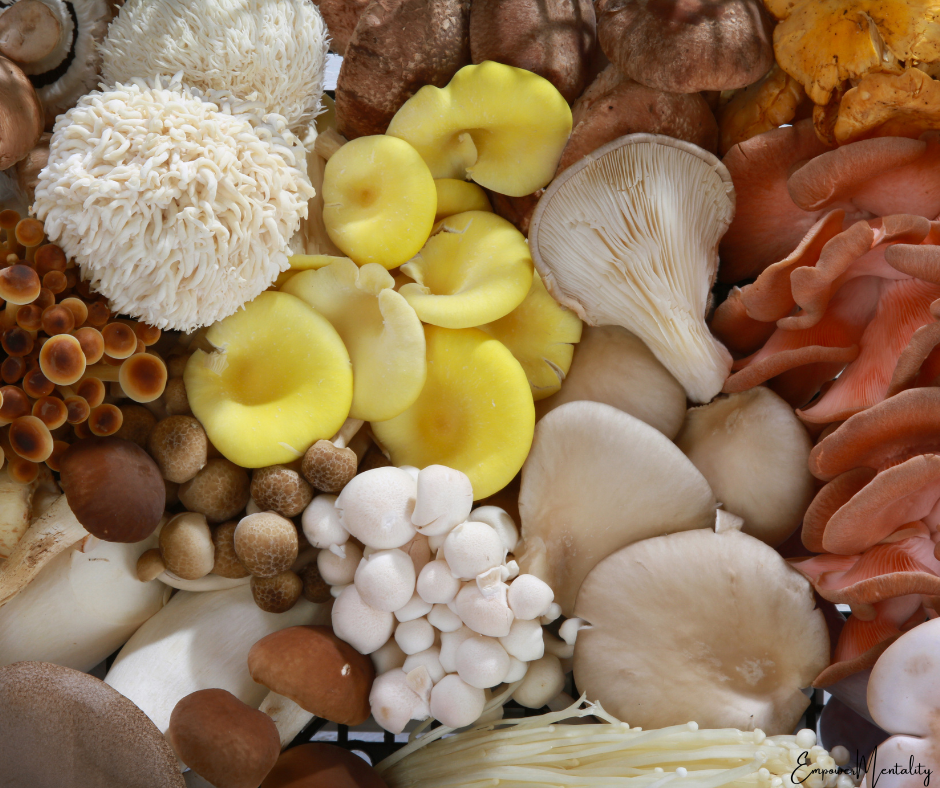
Why Are Mushrooms Good For You?
Health Benefits Of Mushrooms
Mushrooms are a fungus, but that hasn’t deterred most people from adding them to meals. According to the U.S. Department of Agriculture, an average person eats approximately three pounds of mushrooms a year. And now there’s even more reasons to include mushrooms into your diet.
Mushrooms bring a savory flavor to meals without adding much fat, calories or sodium. But the health benefits don’t stop there. Researchers continue to uncover how mushrooms can ward off chronic disease and improve your everyday health. Read on to discover seven ways that mushrooms can benefit your health:
1. Reduce risk of developing cancer
Studies show eating 1 to 2 cups of mushrooms each week may reduce your risk of cancer by up to 45%. In Japan, patients may even receive a Reishi mushroom-based drug as part of cancer treatment. Mushrooms are a rich source of two powerful antioxidants - glutathione and ergothioneine - which help shield cells from damage and support immune function. Ergothioneine (an amino acid that is found mainly in mushrooms, as well as red and black beans) may also help mitigate some of the chronic diseases associated with aging, which is why some researchers call it the ‘longevity nutrient'.
2. Bolster your brain
The antioxidants and B vitamins in mushrooms help support neurotransmitter function. Studies suggest eating 2 cups of mushrooms each week can cut the risk of developing cognitive impairment in half. Other research suggests mushrooms may help protect against neurodegenerative diseases such as Alzheimer’s disease and Parkinson’s disease.
“Mushrooms are versatile, nutrient-dense and low in calories. They not only bring a savory flavor to meals, but they also come with unique nutrient properties.”
3. Protect your heart
Rich in potassium, low in sodium and loaded with heart-healthy compounds, mushrooms help prevent plaque buildup on arterial walls. Varieties such as Shiitake, Maitake and Reishi also contain beta-glucans, a type of prebiotic fiber associated with lower cholesterol and blood pressure levels and reduced inflammation.
4. Boost immune defenses
With antioxidants like selenium (which helps protect cells against damage) and vitamin B6 (which helps form red blood cells), mushrooms are one of only a few food sources that are naturally rich in immune-boosting vitamin D. Certain varieties contain ergosterol, a compound that transforms into vitamin D when exposed to sunlight.
5. Promote a healthy gut
Your gut is home to billions of bacteria. Mushrooms are not only rich in fiber, but they also contain polysaccharides, which are linked to improved insulin resistance and GI health. These polysaccharides stimulate the growth of healthy bacteria and suppress harmful bacteria. Unlike other foods, which break down with stomach acid, the polysaccharides in mushrooms pass through the gut to the colon, encouraging good bacteria to grow along the way.
6. Lower sodium intake
Sodium and high blood pressure often go hand in hand. Sodium causes the body to retain excess fluid, which can increase blood pressure. To decrease your sodium intake, consider adding mushrooms to your meals. Mushrooms are naturally low in sodium – an entire cup of White Button mushrooms has just five milligrams of sodium. They offer savory flavor that reduces the need for added salt to keep your blood pressure low.
7. Promote lower cholesterol
Mushrooms make an excellent substitute for red meat while minimizing calories, fat and cholesterol. Research shows that Shiitake mushrooms, in particular, help to keep cholesterol levels low. They contain compounds that inhibit the production of cholesterol, block cholesterol from being absorbed and lower the overall amount of cholesterol in your blood.

How to Incorporate Mushrooms Into Your Diet

Drinking Mushrooms in Teas or Coffee
- Reduced stress: Adaptogens can affect how much cortisol - a hormone produced in times of stress - your body releases. If the adaptogens in mushroom coffee reduce the amount of cortisol in your system, that may help reduce the effect that stress can have on your body.
- Reduced inflammation: Mushrooms contain compounds called polyphenols, as well as a variety of antioxidants. Together, they can help reduce inflammation in the body.
- Improved immune system: Mushrooms contain antioxidants and other compounds that may help strengthen your immune system.
- Better sleep: Drinking less caffeine can benefit your sleep. Proponents of mushroom coffee claim that the adaptogens in the drink also improve sleep quality. Reishi mushrooms are known to improve sleep quality and help with chronic fatigue.
- Increased energy and alertness: The beneficial components in mushrooms like Chaga, Cordyceps or Lion's Mane may help you feel more alert and energized.





